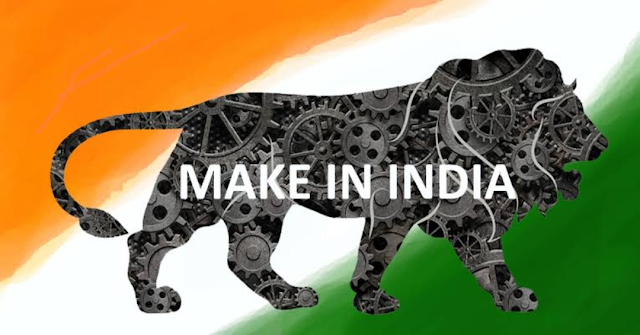The 53 countries supporting China's crackdown on Hong Kong
Countries that criticized or defended China’s security law for Hong Kong at the UN
Dueling statements at the UN Human Rights Council in Geneva shed light on geopolitical currents far beyond the walls of that institution.
Driving the news: China's Foreign Ministry and state media declared victory after 53 countries backed "Beijing's new Security Law for HonKong". Just 27 criticized the law, which imposes harsh penalties for vaguely defined political crimes and is widely viewed as the death knell for Hong Kong's autonomy.
In the room: The two statements were read back to back in Tuesday's session, with Cuba supporting China and the U.K. representing the critics. China's other allies weren't named publicly until Axios obtained the list this morning.
The big picture: This is one of the clearest indications to date of which countries are challenging a rising superpower, at least on human rights, and which are lining up behind it.
Breaking it down
China's critics are concentrated in Europe and also include major democracies like Australia, Canada and Japan. All 27 are considered "free" in Freedom House's global ratings.
- China is backed by an assortment of "not free" and "partially free" countries, including many of the world's most brutal dictatorships — North Korea, Saudi Arabia, Syria.
- Three small “free” countries did back Beijing: Antigua and Barbuda, Dominica, and Suriname (combined pop. ~700,000).
- All three, and at least 40 of the other signatories, have signed onto China’s Belt and Road infrastructure project.
- Many of the African signatories, meanwhile, are trying to renegotiate debt payments to China amid sharp COVID-related downturns.
- Our thought bubble: China's massive investments are bearing fruit, notes Axios' Bethany Allen-Ebrahimian: "Beijing has effectively leveraged the UN Human Rights Council to endorse the very activities it was created to oppose."
The full lists
- Supporting: China, Antigua and Barbuda, Bahrain, Belarus, Burundi, Cambodia, Cameroon, Central African Republic, Comoros, Congo-Brazzaville, Cuba, Djibouti, Dominica, Egypt, Equatorial Guinea, Eritrea, Gabon, Gambia, Guinea, Guinea-Bissau, Iran, Iraq, Kuwait, Laos, Lebanon, Lesotho, Mauritania, Morocco, Mozambique, Myanmar, Nepal, Nicaragua, Niger, North Korea, Oman, Pakistan, Palestine, Papua New Guinea, Saudi Arabia, Sierra Leone, Somalia, South Sudan, Sri Lanka, Sudan, Suriname, Syria, Tajikistan, Togo, UAE, Venezuela, Yemen, Zambia and Zimbabwe.
- Opposing: Australia, Austria, Belgium, Belize, Canada, Denmark, Estonia, Finland, France, Iceland, Ireland, Germany, Japan, Latvia, Liechtenstein, Lithuania, Luxembourg, Marshall Islands, Netherlands, New Zealand, Norway, Palau, Slovakia, Slovenia, Sweden, Switzerland, and the U.K.
- The U.S. has been highly critical of China over the law, but withdrew from the Human Rights Council in 2018.
Behind the scenes
Keith Harper, who served as America's representative to the council from 2014 to 2017, says America's absence is one major reason why the balance tipped so dramatically in China's favor.
- Statements like this often play out as "battles between China and the United States," Harper says, with China putting "unbelievable pressure" on countries to back it.
- While some countries on the list "are always going to back China," he says, others joined because "they will get better deals if they are in the good graces of China" and "there’s no detriment there because the U.S. isn’t at the table."
- "Since we have pulled away from nearly all international organizations, China has stepped up big time," Harper says. "They really want to take over for the United States, and this is why.”
Sophie Richardson, China director at Human Rights Watch, says China is attempting not only to silence critics of its record on human rights, but "to change the norms and the protocols of these institutions so that no state really can be held accountable."
The big picture
"One interesting question to ask is, ‘Who’s not on that list who has been on China’s team in the past, and why?'" says Richardson.
- As a series of similar disputes have played out at various international forums, she says, China's support "has sort of plateaued," while more countries are willing to offer criticisms.
- India didn't join the U.K. statement, for example, but did offer a more mild statement "expressing concern" in a signal of its growing willingness to confront China.
There's a price to pay for challenging China, even for major players on the international stage.
- After pushing for an independent probe into China's initial response to the coronavirus, Australia found itself in a costly trade dispute with its largest trading partner.
- Two Canadian citizens are still being held in China, meanwhile, after Canada arrested Huawei's CFO on behalf of the U.S.
What to watch
The U.K. is the latest country to risk China's ire.
- Prime Minister Boris Johnson accused China of a "serious breach" of the terms under which Britain turned over control of Hong Kong in 1997, and he said the U.K. would offer residency and a path to citizenship to eligible Hong Kongers.
- The new scheme could apply to up to 3 million Hong Kong residents and their dependents.
- A spokesperson for China's Foreign Ministry issued an angry retort today, saying the U.K. would "bear the consequences that will arise from this.”








0 Comments
If You have any doubt, Please let me know